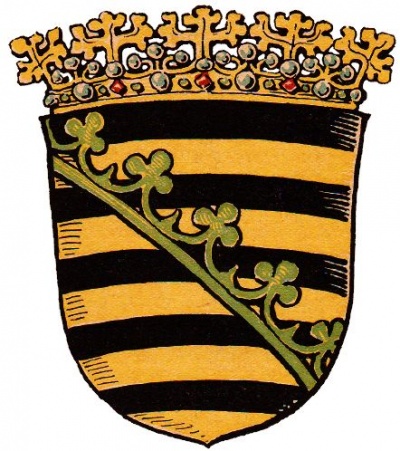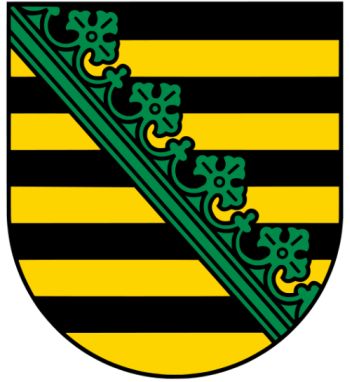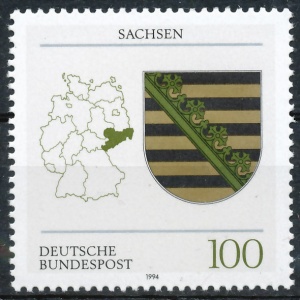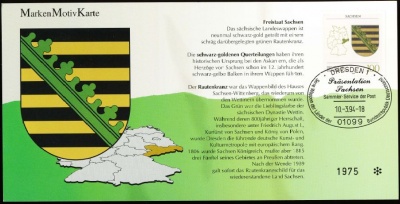Sachsen
SACHSEN
| German | In neunmal von Schwarz und Gold geteilten Feld einen schrägrechten grünen Rautenkranz. |
| English | blazon wanted |
Origin/meaning
The arms of the present State were officially adopted in 1991.
The background of the arms, the bars, are based on the arms of the Ballenstadt family. In 1170 Bernhard, Count of Ballenstedt asked the Emperor for the title and rights of the Dukes of Sachsen, as the former Duke, Heinrich the lion, was killed. He succeeded partly, but his eldest son Heinrich I of Sachsen finally acquired all the territory. Bernhard was also the first one to use the arms with the bars. The crown-ring on the bars is known since 1260 in the seals of Albrecht II and his brother Johann. Their father did not use the ring. The meaning or origin of the ring is not known, although several explanations exist.
The original Duchy was later raised to a Kingdom, that used the same arms until 1918.
The original territory in the meantime was divided in many different territories, all of which used the old Sachsen arms in their arms, see Sachsen-Weimar-Eisenach, Sachsen-Coburg-Gotha, Sachsen-Meiningen-Hildburghausen, Sachsen-Altenburg and Anhalt.
From 1918-1945 it was the Free State of Sachsen, which used the same arms as the current State.
 The arms of the Free State of Sachsen (1918-1945) |
When Sachsen was restored as a German State the old arms were also restored.
See also : Kingdom of Sachsen and Province Sachsen
| The arms on a 1994 stamp. |
The arms on a 1994 FDC. |
This page is part of the German heraldry portal Deutsche Wappensammlung |
Heraldry of the World |
|
German heraldry:
|
Selected collector's items from Germany:
|
Contact and Support
Partners:
Your logo here ?
Contact us
© since 1995, Heraldry of the World, Ralf Hartemink 
Index of the site
Literature: Ströhl, 1897; Schurdel, 1995














